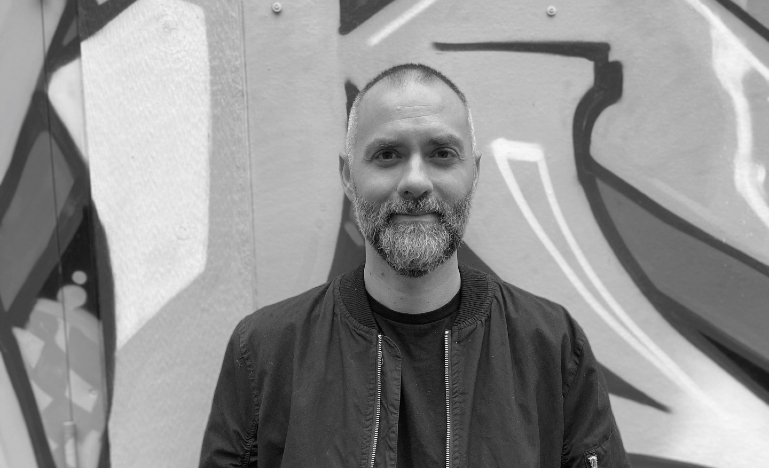A vision to transform criminal justice
Work to heal trauma instead of only punishing crime. That's the approach we need to take to fix what ails our criminal justice system, according to Benjamin Perrin's, author of Indictment: The Criminal Justice System on Trial.

If you had to design a criminal justice system from scratch, what would it look like? That's hardly an original question. But in thinking about what our Canadian criminal justice system ought to do and how, do we ever ask the people who have lived in it? According to Benjamin Perrin, professor at the Peter A. Allard School of Law at the University of British Columbia, we sit at our laptops and read cases, articles and peer-reviewed books. But we barely talk to the people with lived experience.
So he did.
In his newly released book, Perrin (interviewed here on Modern Law) presents the true stories of people who spent time in jail for offences big and small, as well as the victims of crime and other experts within the system. As he told Métis-Cree lawyer Myrna McCallum during a recent episode of her podcast, The Trauma-Informed Lawyer, Harold Johnson, the author of Firewater and Peace and Good Order, made it clear that "if you don't talk to people who are affected by the system, you're doing more harm."
Indictment, published in early October by the University of Toronto Press, is meticulously researched but reads more as a collection of gripping personal stories than a legal textbook. The stories featured in the first half of the book will leave you sad, horrified, angry, and may be triggering or upsetting.
In a companion podcast with the same title, available for free on all podcast platforms, Perrin offers us the extended version of those stories, told by the people who lived them. Perrin was also interviewed for CBA National's Modern Law podcast (see embedded link below). They don't make for easy listening but are essential for anyone who wishes to understand the issues we confront in our approach to crime.
We learn from Perrin's compelling storytelling that Canada's criminal justice system does much more harm than good. Far from making people in Canada any safer, it makes communities more dangerous by holding offenders in inhumane conditions behind bars and then releasing them without adequate support or resources, leaving them to find the path to rehabilitation on their own.
Predictably, people who suffer from substance use disorders or mental illnesses tend to offend. They often end up back in jail, and with each cycle, they become more hardened, making the prospect of rehabilitation even more remote.
According to Perrin, people closely acquainted with the criminal justice system, from academia to law enforcement and criminal lawyers, shared how they were "blown away" by how the system treats individuals throughout their lives, whether they are survivors or those who have caused harm.
He does a remarkably efficient job of putting Canada's justice system on trial, presenting thorough evidence in a concise and accessible way. It's weighty but not heavy, as the author's compassion and empathy shines through.
Yet, as he readily admits, it's much easier to tear something down than build it up.
So, how can the system be transformed? Perrin quotes André Poilievre of STR8 UP, a Saskatchewan not-for-profit organization that helps people individuals break free from gangs, drugs, and crime. Poilievre emphasizes that society's approach to criminal justice "needs to be completely overhauled in terms of the philosophies of wellness and healing versus that of incarceration and punitive."
Easier said than done, and Perrin openly admits he isn't entirely sure where to start. But he continues to engage with as many people as possible. Since the book's release, he has spoken with a wide range of people, from those who have been incarcerated and families who have lost loved ones in prison to survivors of crime, Indigenous advocates and politicians.
The way he sees it, there are seven key principles to a transformed criminal justice system -- implementing measures to mitigate adverse childhood experiences; decriminalizing substance abuse disorders; addressing trauma in ways that promote healing; relying more on non-police emergency responses to community needs; pursuing restorative justice opportunities; favouring rehabilitation and healing over the harshness of traditional jails; focusing on the successful reintegration of offenders into society; and creating the space for a self-sufficient system of Indigenous justice.
Perrin's message to legal professionals is that trauma-informed lawyering is a critical competency "that none of us learned in law school."
"We really need to get better informed and change the way we practise to be more trauma-informed to serve not just clients and people we encounter within the system better, but also for each of ourselves," he says.
Being trauma-informed means having some understanding of and empathy for the root causes of crime, including poverty. While it's essential to hold individuals accountable and, at times, impose penalties for their actions, it should not go beyond what's necessary for the public to have confidence that their criminal justice system is there to keep them safe. It should also aim to ensure that those convicted of crimes not only serve their debt to society but also receive the necessary support to successfully reintegrate into society upon completing their sentence.
Adhering to the key principles outlined in Indicted would benefit us as a society in being — and feeling — safer. And we wouldn't squander inordinate amounts of money, turning people into hardened criminals inside dehumanizing prisons.
Instead, we would focus on addressing trauma and mental health issues, providing people with the support and resources necessary to transform their trauma into healing rather than transfer it onto victims by engaging in criminal behaviour.


